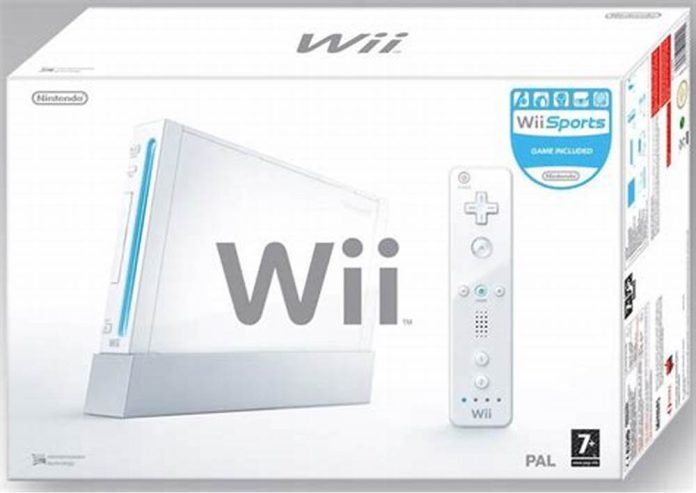The Nintendo Wii, released in 2006, is often hailed as one of the most innovative gaming consoles of its time. As I reflect on the impact it had on gaming culture, I am transported back to a period when motion-sensing technology was a novel concept, and gaming was becoming a more interactive experience. In this article, I will explore the features, games, and cultural significance of the Wii, as well as its legacy in the gaming industry.
The Rise of the Wii
When the Nintendo Wii was first introduced, it aimed to reach a broader audience than traditional gaming consoles. Nintendo’s strategy was to create an inclusive gaming experience that appealed not only to hardcore gamers but also to families and casual players. This approach was a significant departure from the competition, primarily Microsoft’s Xbox and Sony’s PlayStation, which focused on high-definition graphics and complex gameplay.
The Wii’s unique selling proposition was its innovative motion-sensing controller, the Wii Remote. This controller allowed players to physically interact with games, creating a more immersive experience. I remember unboxing my Wii and feeling a surge of excitement as I picked up the Wii Remote for the first time. The idea of swinging a controller to play tennis or bowling felt revolutionary.
Key Features of the Nintendo Wii
The Nintendo Wii was packed with features that set it apart from its competitors. Here are some of the key aspects that made it a standout console:
Motion Control
The Wii Remote utilized accelerometers and infrared technology to detect motion and orientation. This feature transformed gaming from a sedentary activity into a dynamic experience. I can vividly recall playing “Wii Sports,” where I swung the controller like a tennis racket and felt as if I were on the court.
User-Friendly Interface
The Wii’s interface was designed to be simple and intuitive. The menu was easy to navigate, and the focus was on accessibility. This user-friendly approach made it easier for non-gamers to pick up the console and enjoy gaming without a steep learning curve.
Backward Compatibility
Another significant feature was the Wii’s backward compatibility with GameCube games. This allowed those who owned the previous Nintendo console to continue enjoying their favorite titles without having to purchase new ones. I appreciated being able to revisit classic games while exploring new ones.
Online Connectivity
Although the online functionality of the Wii was not as robust as its competitors, it did offer features like the WiiConnect24, which allowed users to receive updates and messages while the console was in standby mode. The Virtual Console was another highlight, enabling players to download and play classic games from previous Nintendo systems.
Iconic Games That Defined the Wii Experience
The success of the Wii can be attributed to its extensive library of games that catered to various audiences. Below are some of the most iconic titles that defined the Wii experience:
Wii Sports
“Wii Sports” was included with the console and became a cultural phenomenon. The game’s simple yet engaging mechanics made it a perfect party game. I spent countless hours playing tennis, bowling, and boxing with friends and family. The title showcased the potential of motion controls and helped the Wii reach a wider audience.
Super Mario Galaxy
“Super Mario Galaxy” pushed the boundaries of platform gaming with its imaginative level design and gravity-defying gameplay. As a long-time fan of the Mario franchise, I was thrilled to explore new worlds filled with vibrant graphics and captivating challenges. The game received critical acclaim and is regarded as one of the best in the series.
The Legend of Zelda: Twilight Princess
“The Legend of Zelda: Twilight Princess” offered a darker narrative and a more mature aesthetic compared to previous titles in the series. The use of motion controls for swordplay added an extra layer of immersion. I remember feeling a sense of accomplishment as I solved intricate puzzles and battled foes in this expansive world.
Mario Kart Wii
“Mario Kart Wii” took the beloved racing franchise to new heights with its online multiplayer capabilities. Competing against friends and players worldwide added a competitive edge that kept me engaged for hours. The addition of bikes and the ability to perform tricks were welcome features that enhanced the gameplay.
Cultural Impact and Legacy
The Nintendo Wii’s impact extended beyond just gaming; it influenced social interactions and fitness trends. The console was often found in living rooms, bringing people together for multiplayer gaming experiences. The simplicity and accessibility of the games made it a hit among families, and it became a staple at social gatherings.
Moreover, the Wii introduced the concept of active gaming, paving the way for future consoles and games that emphasized physical activity. Titles like “Just Dance” became wildly popular, encouraging players to get up and move. I remember hosting dance-offs with friends, which became a regular occurrence thanks to the engaging gameplay.
The Decline and Transition
Despite its initial success, the Wii eventually faced challenges. As technology advanced, gamers began to prioritize graphics and complex gameplay over motion control. The Wii U, released in 2012, struggled to replicate the success of its predecessor, and Nintendo shifted its focus toward the hybrid console, the Nintendo Switch.
However, the legacy of the Wii remains strong. It opened the door for innovative gaming experiences and demonstrated that gaming could be a social and active pastime. The console’s unique approach changed how developers thought about gameplay mechanics.
Conclusion
As I look back on my experiences with the Nintendo Wii, I am reminded of the joy it brought into my life and the lives of many others. It was a console that not only offered entertainment but also fostered connections and created memories. The Wii challenged traditional gaming norms and set the stage for future innovations.
For those who grew up with the Wii, it represents a cherished era of gaming that was characterized by creativity, accessibility, and fun. Although the technology has evolved, the spirit of the Wii continues to influence the gaming industry today. I encourage anyone interested in gaming history to revisit the Wii and explore the titles that defined a generation.
<iframe width="560" height="315" src="https://www.youtube.com/embed/9l-GDEJQ81o?si=IThqj8HtKaGkgwll" title="YouTube video player" frameborder="0" allow="accelerometer; autoplay; clipboard-write; encrypted-media; gyroscope; picture-in-picture; web-share" referrerpolicy="strict-origin-when-cross-origin" allowfullscreen></iframe>




.jpg?w=100&resize=100,70&ssl=1)
